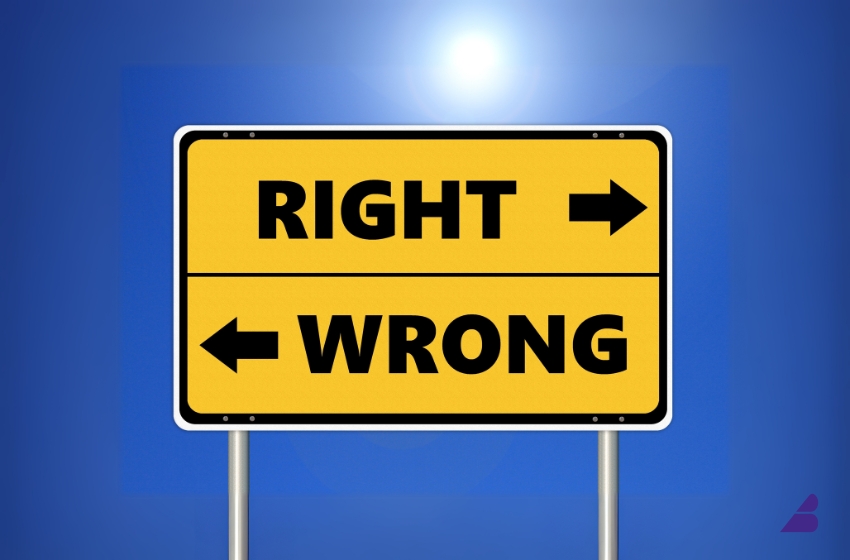In today’s socially conscious world, consumers expect more than just quality products and catchy slogans. They want to support brands that align with their values, ethics, and social responsibility. This shift has led to the rise of ethical advertising—where transparency, honesty, and integrity take center stage.
But what exactly is ethical advertising? And how can brands ensure they’re not crossing moral or ethical lines in their campaigns? Let’s dive in.
1. What Is Ethical Advertising?
Ethical advertising is the practice of promoting products and services in a truthful, responsible, and socially conscious manner. It avoids misleading claims, manipulative tactics, and offensive content, instead focusing on:
✔ Honest Messaging – No exaggerated or deceptive claims
✔ Inclusivity & Diversity – Representing all demographics fairly
✔ Sustainability – Eco-conscious marketing and product transparency
✔ Social Responsibility – Supporting causes that benefit society
✔ Consumer Well-being – Avoiding fear-based tactics or unhealthy messaging
💡 Example: A skincare brand that highlights natural ingredients without making false “miracle cure” claims follows ethical advertising principles.
2. Why Ethical Advertising Matters in 2025
With the rise of social media activism and brand accountability, consumers are quick to call out brands that engage in unethical practices.
📊 Stats That Matter:
🔹 76% of consumers say they will stop buying from companies they see as unethical.
🔹 64% of Gen Z and Millennials prefer brands that take a stand on social issues.
🔹 88% of consumers trust brands that are honest about their products and values.
💡 Example: Fast fashion brands have faced backlash for misleading sustainability claims (“greenwashing”), leading consumers to favor ethical brands instead.
3. Common Ethical Issues in Advertising
Despite the importance of ethical marketing, many brands still make critical mistakes that damage trust and reputation. Here are some common pitfalls:
🚨 1. Greenwashing (False Sustainability Claims)
Brands exaggerate their eco-friendliness without real action.
❌ Example: A company claims to be “100% sustainable” but still uses plastic-heavy packaging and unethical labor practices.
✔ Ethical Alternative: Be transparent about actual sustainability efforts and progress.
🚨 2. Manipulative or Fear-Based Advertising
Ads that exploit insecurities or create unrealistic expectations.
❌ Example: Weight loss ads using photoshopped images to promote unattainable body standards.
✔ Ethical Alternative: Promote body positivity, mental well-being, and realistic results.
🚨 3. Lack of Diversity & Inclusion
Ignoring marginalized communities or reinforcing harmful stereotypes.
❌ Example: A beauty brand using only light-skinned models, excluding diverse skin tones.
✔ Ethical Alternative: Use inclusive representation across all demographics.
🚨 4. Data Privacy Violations
Collecting and using consumer data without consent.
❌ Example: Apps that track user behavior without clear disclosure or permission.
✔ Ethical Alternative: Be transparent about data collection policies and give users control over their information.
🚨 5. False or Misleading Claims
Exaggerating benefits or making claims that lack scientific backing.
❌ Example: A supplement brand claiming “clinically proven results” without scientific studies.
✔ Ethical Alternative: Provide factual, verifiable claims backed by research.
4. Brands Leading the Way in Ethical Advertising
Many companies are setting an example by embracing honest, responsible marketing. Here are some standout brands:
🌿 Patagonia: Transparency in sustainability efforts, encouraging customers to repair old clothing instead of overconsuming.
🚫 Dove: Pioneered body-positive campaigns, banning airbrushed models and promoting real beauty standards.
📱 Apple: Emphasizes consumer data privacy in advertising, highlighting user control over personal information.
🥤 Coca-Cola (Honest Tea): Markets sustainability initiatives with accurate, transparent reporting, avoiding greenwashing claims.
5. How to Implement Ethical Advertising in Your Brand
Want to make your brand’s advertising more ethical? Follow these principles:
✅ 1. Be Honest & Transparent
- No misleading claims—whether about ingredients, results, or environmental impact.
- Clearly state what your product can and cannot do.
💡 Example: If a skincare product reduces acne, say “improves skin appearance over time” instead of “guaranteed to cure acne overnight.”
✅ 2. Prioritize Diversity & Inclusion
- Represent different races, body types, abilities, and genders in your campaigns.
- Avoid stereotypes and tokenism—authenticity matters.
💡 Example: Nike’s campaigns feature athletes of all backgrounds, abilities, and body types, promoting inclusivity in sports.
✅ 3. Be Socially & Environmentally Responsible
- If promoting sustainability, provide real proof (e.g., certifications, supply chain transparency).
- Support causes that align with your brand’s mission without exploiting social movements for profit.
💡 Example: Instead of vague “eco-friendly” claims, list specific actions like “100% recycled packaging” or “carbon-neutral production.”
✅ 4. Respect Consumer Privacy
- No hidden tracking or collecting data without consent.
- Make privacy policies clear and easy to understand.
💡 Example: Apple’s iOS updates include privacy labels that show users exactly what data an app collects before downloading.
✅ 5. Avoid Fear-Based or Manipulative Tactics
- Instead of pressuring consumers, focus on empowering them.
- Create positive, uplifting messaging rather than fear-driven ads.
💡 Example: A fitness brand that promotes strength and confidence instead of body shaming sells more than one using insecurity-driven messaging.
6. The Future of Ethical Advertising
Ethical advertising isn’t just a trend—it’s the future of marketing. With increasing consumer awareness and stricter regulations, brands that embrace ethical marketing will build stronger, long-term customer relationships.
🔮 What’s Next?
✅ AI & Ethical Marketing – Using AI to detect misleading claims before publishing.
✅ Blockchain for Transparency – Verifiable supply chain & ad tracking.
✅ More Regulations on Greenwashing & Data Privacy.
✅ Authentic Storytelling & Purpose-Driven Brands.
🚀 Brands that stay honest, inclusive, and responsible will not only thrive but also earn consumer trust in the long run.
Final Thoughts: Does Your Brand Have a Moral Compass?
Ethical advertising isn’t just about avoiding negative press—it’s about building a brand consumers trust and respect.
✔ Consumers demand authenticity—be honest and transparent.
✔ Diversity isn’t optional—represent all voices fairly.
✔ Sustainability must be real—avoid greenwashing and provide proof.
✔ Privacy is a priority—respect consumer data rights.
✔ Positive messaging wins—uplift rather than manipulate.
🌱 In a world where trust is everything, ethical advertising is the key to long-term brand success. Does your brand have a moral compass?
